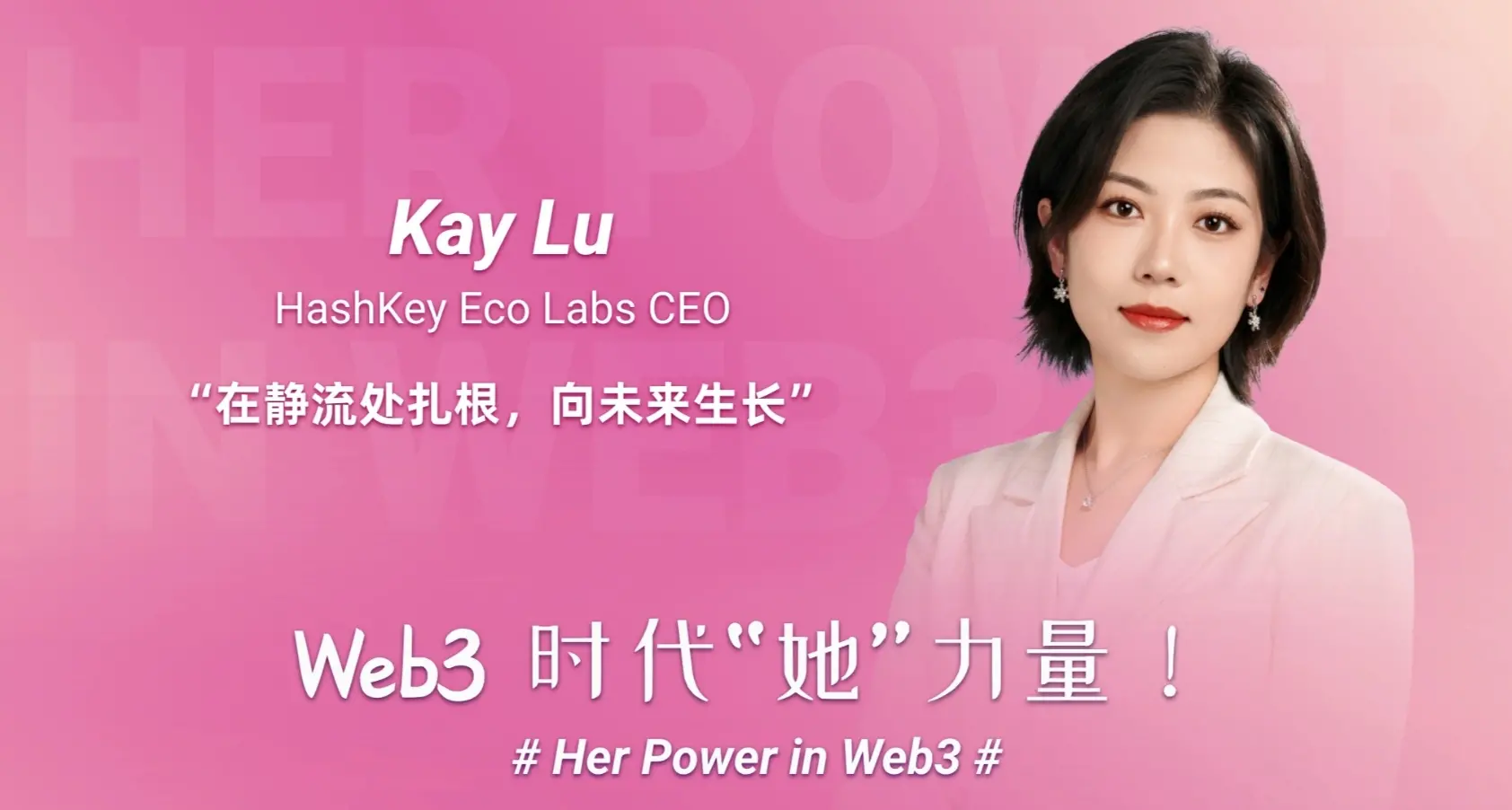The first official industry report on Web3.0 from Shanghai has been released: a multi-strong pattern has emerged globally, recommending an innovative regulatory system
At the recent release conference of the "2024 Shanghai Web3.0 Innovation Ecosystem Construction Research Report" (hereinafter referred to as the "Report"), representatives from government agencies, universities, and relevant industries unanimously agreed that the development of Web3.0 is crucial for the information technology industry. The "Report," guided by the Shanghai Municipal Science and Technology Commission, was jointly released by the Liberation Daily and the School of Economics at Fudan University, marking Shanghai's first industry report focused on Web3.0.
Initial Formation of Industrial Ecosystem , RWA Trend Emerging
To gain a comprehensive understanding of Web3.0, the writing team of the "Report" conducted extensive research on upstream and downstream enterprises in the Web3.0 sector. The surveyed entities included foundational technology development companies such as Shutu Conflux and Artela, security audit firms like Certik and ZAN, data analysis companies like Trusta Labs, infrastructure providers such as TRON and Binance, and users of Web3.0 applications like COSCO Shipping.
Through in-depth and comprehensive research, the "Report" pointed out that a global Web3.0 ecosystem has initially formed, based on a diverse computing power network, distributed data storage network, and high-speed communication network, with blockchain infrastructure at its core. Currently, core technology innovations in blockchain are active, the industry scale is steadily growing, and corporate strength is continuously being demonstrated. Ethereum, Solana, Polygon, and others have formed a rich, high-performance, and secure public chain ecosystem, gradually establishing a dominant multi-chain coexistence pattern led by Ethereum.
Regarding the next steps for Web3.0 development, both the "Report" and attending experts mentioned the emerging trend of "RWA."
RWA stands for "Real World Asset," referring to the tokenization of real-world assets such as currencies, bonds, trade finance, and energy. The "Report" indicated that in the next 5 to 10 years, with the exploration by governments, regulatory agencies, and financial institutions, traditional finance and capital will accelerate their convergence with RWA, forming multiple networks for the tokenization of funds and assets globally, promoting the interconnectivity of global financial payment transactions.
Currently, as policies, technologies, and markets continue to mature, financial assets and technologies in Web3.0 are beginning to be accepted by multiple governments and mainstream financial institutions. Against this backdrop, the tokenization of funds represented by fiat-based stablecoins, tokenized deposits, and central bank digital currencies (CBDCs), as well as the tokenization of assets represented by real-world assets (RWA), is rapidly developing and growing.
For instance, the IMF is developing a CBDC platform to facilitate transactions between countries. In March of this year, BlackRock launched its first tokenized fund issued on the Ethereum network, namely the BlackRock US Dollar Institutional Digital Liquidity Fund (BUIDL).
In various explorations, Hong Kong's practices are also noteworthy. With the participation of the Bank for International Settlements (BIS), the Hong Kong Monetary Authority, the Bank of Thailand, the Digital Currency Research Institute of the People's Bank of China, and the Central Bank of the UAE jointly developed the "Multilateral Central Bank Digital Currency Bridge Platform" project to help relevant central banks accelerate the use of CBDCs to improve cross-border payment efficiency and address many bottlenecks in traditional international cross-border payments.
On May 7, the Hong Kong Monetary Authority announced the list of the working group for the wholesale central bank digital currency (wCBDC) project Ensemble to support interoperability between wCBDC, tokenized currencies, and tokenized assets. Initial members include the Monetary Authority, the Securities and Futures Commission, the Hong Kong Centre under the BIS Innovation Hub, the CBDC Expert Group, and seven corporate institutions, namely Bank of China (Hong Kong), Hang Seng Bank, HSBC, Standard Chartered Hong Kong, HashKey Group, Ant Group, and Microsoft Hong Kong. This move is also seen as a key step for Hong Kong towards the RWA market.
TRON pointed out during the preliminary research for the "Report" that the popularization of stablecoins and RWA is an inevitable development process for blockchain and cryptocurrency technology. With the approval of Bitcoin spot ETFs, stablecoins and RWA will usher in a rapid development period, driving the growth of the entire Web3 industry.
"RWA will be a trend in the future; it not only involves on-chain and off-chain interactions but also requires regulatory compliance. Under the premise of regulatory alignment, the speed and efficiency of RWA promotion are relatively high," said Gu Ronghui, co-founder of the security agency CertiK, at the release conference.
Mainstream Capital Enters , "Waiting for the Wind" Requires Top-Level Design
Alongside the simultaneous development of RWA, ETFs are attracting mainstream capital into the Web3.0 market. In January 2024, the U.S. Securities and Exchange Commission (SEC) approved the first Bitcoin spot ETF in history, authorizing 11 ETFs to begin trading.
Similarly, the Hong Kong Securities and Futures Commission approved Bitcoin ETF and Ethereum ETF products from Huaxia Fund (Hong Kong), Harvest Global Investments, and Bosera International in April. On June 20, Bitcoin ETFs made their debut on major securities exchanges in Australia. The "Report" believes that the listing and trading of spot ETFs is a significant milestone for the Web3.0 industry, which will greatly enhance market liquidity and further stimulate innovation and development in the ecosystem.
The "Report" suggests that with the listing of cryptocurrency ETFs, the goal of Hong Kong becoming a Web3.0 hub is becoming increasingly clear. However, it is also evident that the Hong Kong market has maintained a prudent and sustainable development approach towards mainstream capital entering the Web3.0 market from the very beginning, including the legislative passage of the "2022 Anti-Money Laundering and Counter-Terrorist Financing (Amendment) Bill" and the introduction of credible regulatory agencies for "dual-license" regulation of exchanges. Currently, only HashKey Exchange and OSL Digital Securities have obtained virtual asset licenses in Hong Kong.
Referring to the practices of the Hong Kong market, the "Report" and attendees believe that they reflect the necessity of strengthening top-level design as one of the key tasks for the current development of Web3.0.
Meng Yan, the principal of SFT Labs, pointed out that Web3.0 is at the early stage of significant development, "with one condition and two triggers." "One condition" mainly refers to technological development, namely significant progress in high-performance blockchain, privacy computing, ZK zero-knowledge proofs, security audits, etc.; one of the "two triggers" is the external financial environment, primarily macro monetary policy, while the other is regulatory policy. He also added, "Web3.0 is currently in a dormant phase, waiting for a loose macro environment. Additionally, due to the lack of a well-established unified regulatory system worldwide, this market always faces many speculative and fraudulent risks, posing a long-term challenge to the healthy development of Web3.0."
Experts Suggest Research on "Token Economics"
"I am here in Melbourne to discuss the development of overseas WEB3.0 with you," said Meng Yan, principal of SFT Labs and co-author of the ERC-3525 token standard, via video link. In his view, WEB3.0 is on the brink of significant development, akin to the internet before 2005, which, although viewed positively by many, had not yet entered a fast track of development. Currently, the technological reserves in this field are relatively rich, with high-performance blockchain, privacy computing, and real-world assets laying a solid foundation for future industry development. However, in terms of external conditions, support from macro monetary policy and regulatory policy is still needed. "I suggest that domestic government departments accelerate the research and formulation of regulatory policies for Tokens to provide security for the 'Token economy' and digital assets."
Regarding the "Token economy," Xu Xiaoyu, managing partner of Amino Capital from Silicon Valley, stated that as the WEB3.0 era approaches, "Token economics" is on the rise, and governments, universities, and research institutions can conduct in-depth studies on this field to provide academic support for the prosperity of the next generation of the internet and the construction of innovative regulatory systems.
Li Chao, deputy director of the Blockchain Research Institute of the Shanghai Academy of Sciences, also mentioned, "How to balance regulation and Web3.0 innovative applications is the key to whether Web3.0 can develop healthily and rapidly."

For this reason, professional institutions and industry insiders are optimistic about the opportunities for China and Shanghai in the development of Web3.0.
In the preliminary research for the "Report," Shutu Company expressed expectations for clear Web3.0 support policies in mainland China, stating, "Only with clear policy guidance will funds support Web3.0 startups, and the compliance costs for enterprises will also be significantly reduced."
How Can Shanghai Contribute to the Development of Web3.0?
The "Report" believes that Shanghai is conducting beneficial explorations in a systematic, institutional, market-oriented, and rule-of-law manner in the development of Web3.0. Under the guidance of supportive policies and plans such as the "14th Five-Year Plan for Digital Economy Development in Shanghai" and the "Special Action Plan for Key Blockchain Technologies in Shanghai (2023-2025)," industries related to Web3.0, represented by blockchain technology, are continuously advancing, promoting the rapid development of the digital economy, and contributing to the construction of Shanghai as an international science and technology innovation center, achieving significant results.
Based on this, the "Report" suggests that in the Web3.0 era, Shanghai can take action in the following six areas: First, fully leverage Shanghai's advantages in the digital economy to provide a solid foundation for the construction of the Web3.0 ecosystem. Second, introduce special support policies around the Web3.0 field and carry out top-level design and system construction for Web3.0. Third, increase financial support for the development of Web3.0. Fourth, actively promote the construction of a standard system in the Web3.0 field. Fifth, create an innovative highland for the Web3.0 industrial ecosystem. Sixth, innovate the construction of the Web3.0 regulatory system.
In summary, Shanghai can utilize its advanced technologies and rich experience in fintech, artificial intelligence, cloud computing, and other areas, combined with the characteristics of its industrial structure, to lead the digitalization of industries, transforming traditional productivity into new quality productivity, and leveraging a solid digital economy foundation to promote the practical application of the Web3.0 industry.










